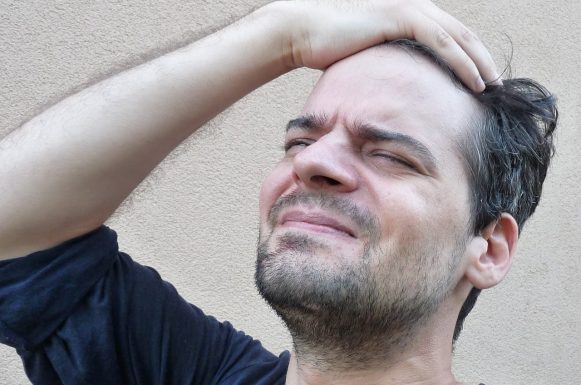Head injuries may be very different and brought about by a number of accidents ranging from falls (from a staircase, ladder, etc.) and sports injuries (head collisions in soccer, hard blows in boxing) to car crashes and acts of violence. Generally, most of them entail physical contact, that is, are caused by any kind of blows to the head. Some of the injuries can be cured relatively quickly while others may pose a real threat to human life. Among the most common types of head injuries are:
- This type of injury is mild. As a rule, a concussion is not of a particular danger unless it is repeated. It occurs when a brain starts shaking back and forth because of the blow. Short-term loss of consciousness, nausea and blurred vision may be present.
- It is bleeding outside the blood vessels. If in the brain, a hematoma is absolutely devastating and may even lead to permanent brain damage.
- Hemorrhage, also referred to as uncontrolled bleeding. The injury is divided into intracerebral hemorrhage and subarachnoid hemorrhage. The severity of the first type is determined by the amount of accumulated blood. As a rule, this one is extremely dangerous and in some cases the death rate may even reach 50%. Possible concomitant symptoms of the latter include vomiting and headache.
- Skull fracture. Breaking skull is hard, in most accidents one will escape unharmed. Yet when the fracture does occur, brain damage is almost unavoidable.
- This type causes a pressure buildup in the brain.
It is also worth mentioning anoxic and hypoxic brain injuries. These occur when the brain cells do not get a sufficient amount of oxygen, which leads to their impairment and death.
When it comes to risk factors, all people are equally susceptible to head injuries, for all of us are human beings and sometimes it is impossible to predict what is in store for us. However, there is a distinct tendency: small children, elderly people and men with accident-prone jobs are more often among the casualties.
What medicines are usually prescribed?
When you experience one of those symptoms above, you should seek immediate medical attention. A doctor will probably prescribe anti-seizure medications (Carbamazepine, Phenytoin Valproic acid, Topiramate, Lamotrigine etc.) because seizures are common and seriously dangerous during recovery from the severe head injury.
If your injury has caused a pressure buildup in your brain, you may be prescribed diuretic drugs (Chlorothiazide, Chlorthalidone, Hydrochlorothiazide, Indapamide or Metolazone). They could help to reduce pressure and stimulate excreting more fluids.
If your injury is serious, the doctor may put you in an induced coma using appropriate medication (propofol, pentobarbital or thiopental). This method is applied when your blood vessels are damaged. Being in a coma, a body doesn’t need as much oxygen and nutrients as it normally does.
Bear in mind that using some of the drugs may result in serious side effects. Also, pay attention to the proper dosage, drug interactions and follow all the instructions very carefully. Shop for your medications only off verified service; Trust Pharmacy is an online retailer of high-quality drugs, diuretics and analgesics solutions such as Lasix, and Tylenol used in managing traumas retail here at a price that is up to 90% lower than in the pharmacies of the U.S. The additional benefit is a speedy and discreet delivery to your door, and international shipping is included.
All in all, the treatment is individualized and the medication must be determined by the doctor according to your physical and mental conditions and also the severity and type of injury.
How to detect a head injury
When one is suspicious of a potential head injury, contacting a medical expert is a must, regardless of the injury severity. The head injuries are divided into minor and severe. The mild head injury may be rather hard to detect and usually is not dangerous in most cases. You can suspect having your head slightly injured if you experience:
- Nausea
- Headache
- Dizziness
- Ringing in the ears
- Confusion
- Insomnia
- Sleeping more than usual
- Short loss of consciousness
- Blurred vision
- Bad taste in the mouth
- Hypersensitivity
- Feeling anxious
It means that your organism needs a rest to get better. But you should probably use some medications to ease your life up while having an injury. The minor head injury is mostly characterized by pain and no other serious symptoms such as bleeding, vomiting etc. Therefore, you may be told to take acetaminophen (Tylenol) to relieve the pain. If you have no bleeding, you may also take ibuprofen or aspirin. But don’t do that if your head is cut or you have fluids pouring from your nose or ears because it can make the bleeding worse. You shouldn’t neglect your health. If your symptoms are escalating, then revisiting a doctor is a necessary issue. It is essential to watch your health condition in such cases. Yet when it comes to more serious stages such as a severe head injury, negligence can be detrimental.
The symptoms of the severe head injury include those of the minor head injury, but they also involve more serious consequences:
- Vomiting
- Loss of consciousness
- Loss of memory
- Convulsions or seizures
- Inability to awaken from sleep
- Coordination problems
- Disorientation
- Slurred speech
- Unusual behavior
- Profound confusion
- Fluids pouring from the ears or the nose
- Mood changes
- Worsening headache
Conclusion
Treating all kinds of head injuries is necessary to avoid undesirable consequences. Remember that contacting a medical expert is of utmost importance. They will help you determine the real impact of the trauma and prescribe the appropriate drugs. Self-treatment, especially when serious symptoms are present, will do you no good!

